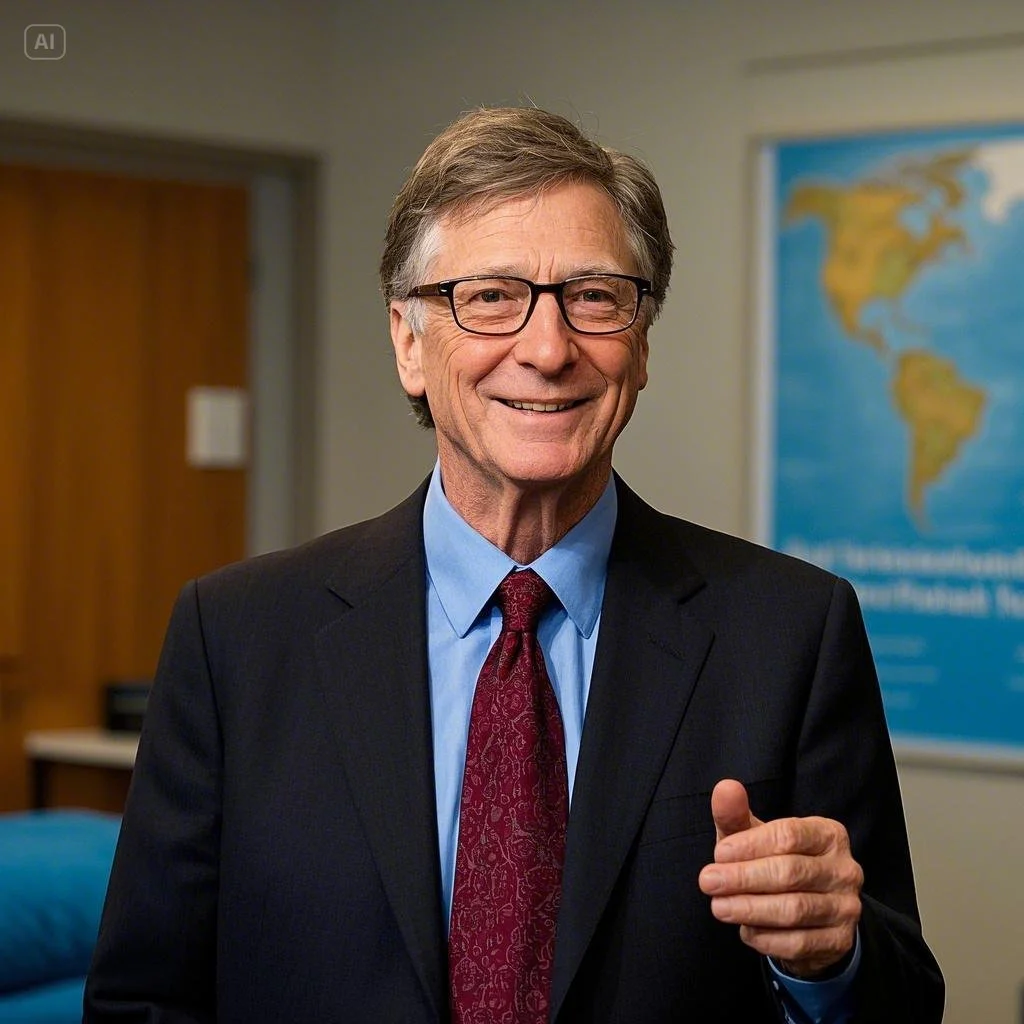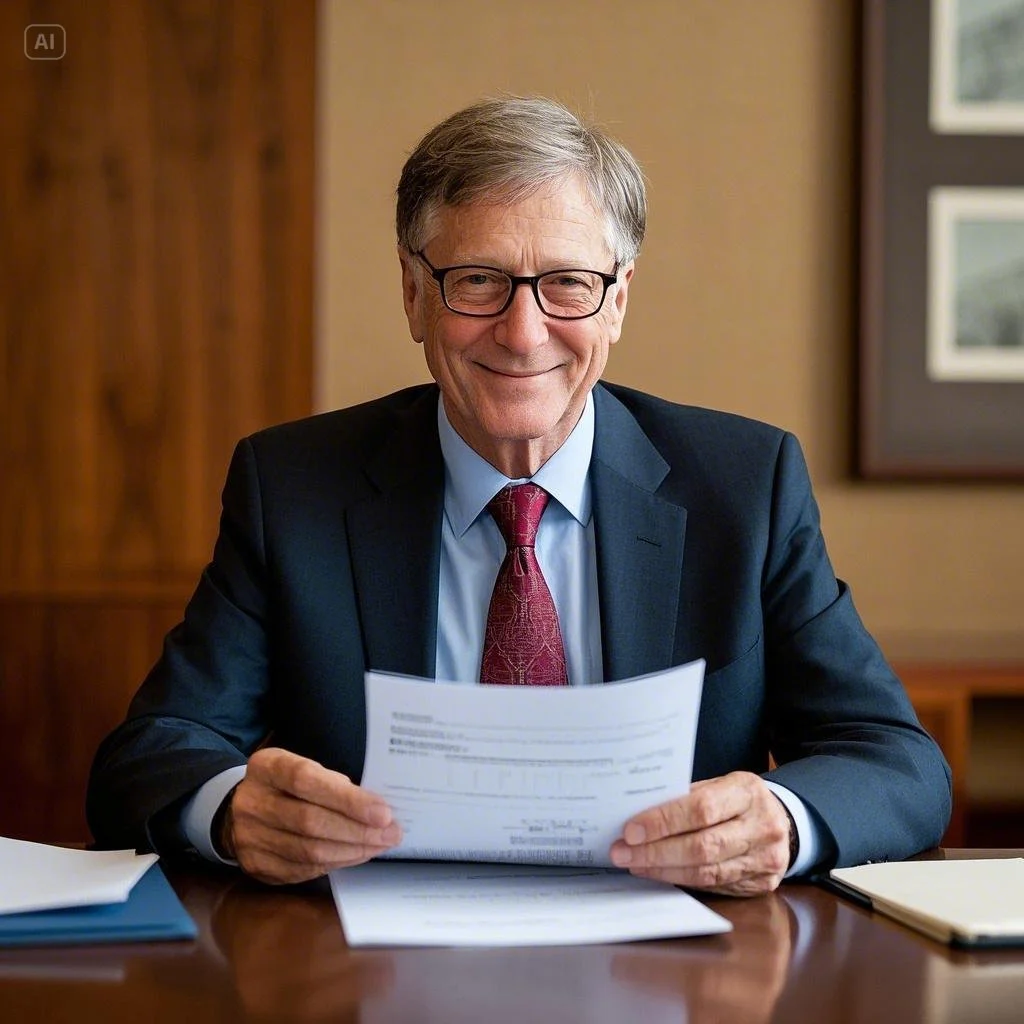What Did Bill Gates Say About Money?
/When one thinks about billionaires, ideas of opulence, ostentatious lifestyles, and unrestricted spending usually surface. But Bill Gates breaks out from that preconception in a way that has enthralled people for decades. Being among the richest persons on Earth, his viewpoint on money is quite different from what you would find. Gates has freely expressed ideas on what money means to him and how it should be used rather than stockpiling riches or chasing unceasing profits. His ideas on duty, altruism, and financial success have helped to define wealth and still inspire debates now.
The Humble Beginning That Shaped Bill Gates’ Views On Financial Success And Wealth
Gates was a small youngster fascinated with computers before he turned rich. Early events greatly influenced his perspective on money; his wealth did not grow over night. Unlike some who are born into riches, Gates got his money by years of commitment, creativity, and risk-taking. This background has enabled him see money as a tool rather than as a status or power symbol.
Bill Gates has considered many times how someone should not identify himself based only on financial achievement. He does not know how much is in a bank account; rather, he thinks that what really counts is how money is used to bring about significant transformation. This attitude was greatly impacted by his history and early job experiences; it became even more clear as he moved from running Microsoft to concentrating on philanthropy.
Also Check Out Our: Is Jeff Bezos A Leader?
Bill Gates And His Deep Commitment To Giving Away Wealth Instead Of Holding Onto It
Unlike many billionaires who concentrate on raising their net worth, Gates has spent the previous few years distributing substantial chunks of his wealth. He has given billions to projects aiming at world health, education, and poverty eradication via the Bill & Melinda Gates Foundation. His philosophy of wealth is based on the conviction that money ought to be applied to address practical issues instead of only accumulating.
Gates' financial philosophy is most famously based on his promise to donate most of his fortune. Long ago, he said he does not believe in leaving large inheritances for his children since he thinks it would be better for them to forge their own paths instead of depending on family fortune. Extreme riches comes with a responsibility to make the world a better place, hence his approach is founded on this principle. This belief has helped many other rich people reassess how they spend their money.
Even with his billions, Gates never ceased to say that money, in itself, is not the secret to happiness. Even if one is financially secure, he opines that the happiness of a person comes from his people, his contribution to society, and self-improvement. The impression is a total opposite of the common perception that money is happiness.
Gates has frequently described how his life really did not change fundamentally once he grew wealthy. Money, of course, is comforting and secure, but it can't substitute for the richer things in life that actually contribute to happiness. He even went so far as to say that some of the times he's felt happiest have nothing to do with success financially but with meaningful experiences, time with loved ones, and seeing the fruits of his philanthropy.
Also Check Out Our: Does Jeff Bezos Own Google?
How Bill Gates’ Approach To Money And Business Stresses Long-Term Thinking Over Short-Term Gains
Over his career, Gates has always strongly advocated long-term financial and business planning. His success with Microsoft came from a vision reaching considerably into the future rather than from ephemeral profit-seeking. This same kind of thinking shapes his attitude to money; he sees how wealth could generate long-lasting, positive change instead of focusing only on temporary gains for now.
Moreover, this kind of thought goes beyond simple generosity. Gates has talked about the need of investments in next generations, sustainable solutions, and significant innovation. Whether it's funding studies for climate change solutions or improving healthcare systems, he sees money as a way of promoting long-lasting development rather than as a means of generating personal riches.
The Unexpected Connection Between Bill Gates’ Views On Money And Everyday Financial Advice That Anyone Can Use
Although most individuals will never become billionaires, several of Gates' ideas on money have applications to daily life. Regardless of income level, anyone can profit from his focus on smart financial management, long-term planning, and prudent use of money.
His approach teaches among other things the lesson that financial security comes first in importance than great wealth. Gates sees the need to save, making future investments, and spend money in ways that add actual value. These ideas coincide with sensible financial advice urging individuals to give stability top priority, avoid needless debt, and concentrate on important investments—that is, education, health, or long-term financial planning.
Also Check Out Our: Did Jeff Bezos Go To College?
Why Bill Gates’ Perspective On Wealth And Giving Challenges The Traditional Idea Of Success
Gates approaches the concept by prioritizing impact above numbers, even although many define success in terms of financial situation. According to him, success is more about how one uses riches than about merely earning it. Not only for his financial success but also for his endeavors to make a significant impact; his dedication to donate and charity activities have made him among the most powerful people on Earth.
Many rich people have began to approach money differently in reaction to his point of view. Along with Warren Buffett, he started the Giving Pledge, which invites billionaires to donate most of their wealth over their lifetime. This movement has changed many of the richest people in the world's perspective on money, therefore demonstrating that financial success could be about world contribution rather than selfish accumulation.
The Bigger Lesson Behind Bill Gates’ Words On Money And How They Apply To Everyday Life
Gates's financial philosophy is predicated on the belief that money is more of a tool than a personal value yardstick. His point of view reminds us that although real success is about how we apply the instruments at hand, financial security is still rather important. Gates's financial concepts provide valuable lessons about giving back, future planning, and stressing what truly makes people happy to people from all income levels.
The concepts Gates addresses are still applicable in fields like cleaning services, where a strong business depends on financial stability. To guarantee long-term success, wise investments, and use of financial resources to have a positive impact all contribute.
By showing that money is only as valuable as the good it can generate, Gates sets himself apart in a society where riches is sometimes regarded as the ultimate goal. Whatever their financial situation, his point of view challenges received wisdom on success, advocates compassion, and motivates everyone trying to make a meaningful life.






